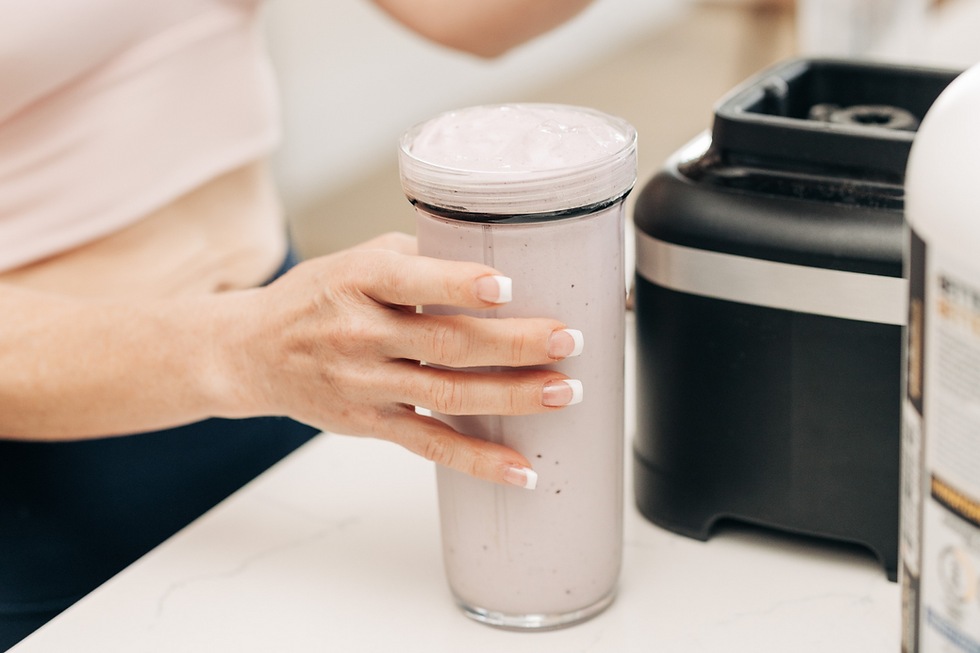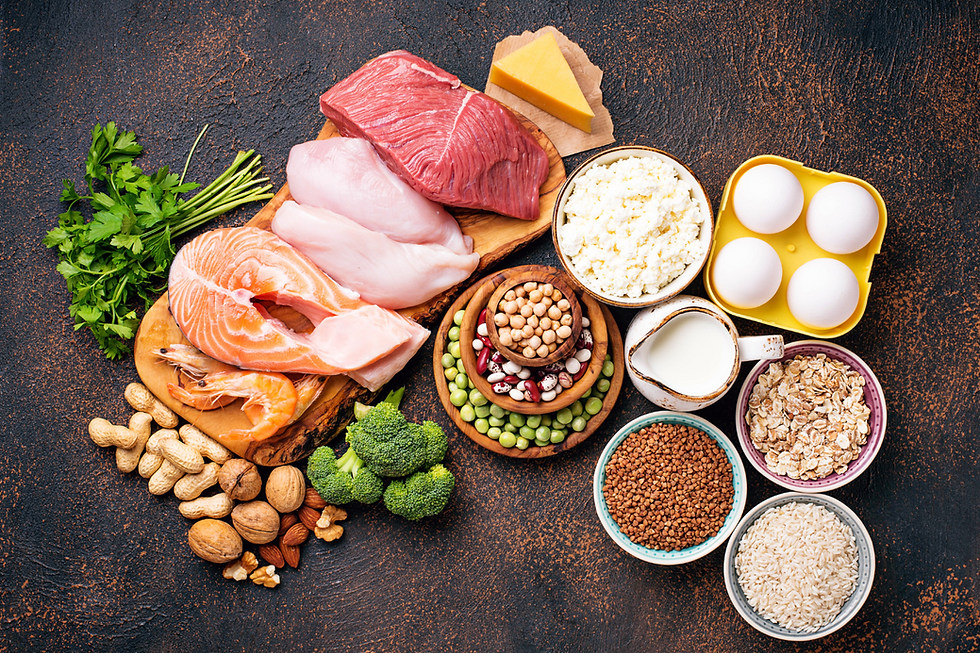High-Protein Vegetables: Surprising Plant-Based Sources to Boost Muscle, Energy, and Health
- Brandi Smith
- Apr 30
- 3 min read
When you think of protein, what comes to mind? Maybe chicken, eggs, or a trusty protein shake? But here’s a little-known fact I love sharing with clients: certain vegetables are surprisingly good sources of protein—and they absolutely count when you’re building a balanced, body-fuelling plate.

Whether you're plant-based, looking to reduce your meat intake, or just want to add more variety to your meals, protein-rich veggies can play a powerful supporting role in your nutrition strategy. And as a health and fitness coach, I can tell you that this kind of diversity in your food choices supports better energy, muscle tone, and long-term wellness.
Let’s take a look at some of the top veggies that pack a protein punch and how to use them in your everyday meals.
1. Broccoli—A High-Protein Vegetable That Does More Than You Think
Broccoli is often called a “superfood” for good reason—it’s rich in fiber, antioxidants, and yes, protein! One cup of chopped broccoli contains nearly 3 grams of protein. Plus, it’s a great source of vitamin C, vitamin K, and folate.
Coach tip: Lightly steam it to preserve nutrients, or toss it into stir-fries and omelets for a boost of fiber and fullness.
2. Sweet Corn—One of the Most Overlooked High-Protein Vegetables
You might be surprised, but sweet corn has more protein than many veggies—about 5 grams per cup. It's also a good source of B vitamins and fiber.
Coach tip: Add corn to bean salads, salsas, or use it as a topper for taco bowls and hearty soups.
3. Spinach—A Leafy Green That Earns Its Spot on the High-Protein Vegetable List
This leafy green isn’t just for smoothies! One cooked cup of spinach delivers about 5 grams of protein—plus magnesium and iron, which are essential for energy and muscle recovery.
Coach tip: Cooked spinach is more protein-dense than raw. Add it to scrambled eggs, soups, or sauté with garlic and olive oil for a quick side dish.
4. Brussels Sprouts—Small but Mighty High-Protein Veggies
These mini cabbages contain about 3 grams of protein per cup and are loaded with fiber and vitamin K.
Coach tip: Roast them until crispy, toss with balsamic glaze, or shred into salads for texture and flavor.
5. Mushrooms—Hearty, Flavourful, and Surprisingly High in Protein
While mushrooms aren’t technically vegetables (they’re fungi), they’re still a delicious low-calorie protein source—especially oyster and white mushrooms.
Coach tip: Use them as a hearty meat substitute in tacos or burgers. Their umami flavor makes them extra satisfying.
6. Potatoes—The High-Protein Vegetable You Didn’t See Coming
Yes, even potatoes offer protein—about 4–5 grams in a medium spud. Plus, they’re rich in potassium and vitamin C.
Coach tip: Enjoy them baked or boiled, not fried. Leave the skin on for more fiber and nutrients.
7. Asparagus—A Detox-Friendly, High-Protein Vegetable to Add to Your Plate
This elegant veggie delivers about 3 grams of protein per cooked cup and is also rich in folate and antioxidants.
Coach tip: Grill or roast asparagus with a squeeze of lemon for a simple, satisfying side.
8. Kale—A Nutrient-Dense Powerhouse Among High-Protein Vegetables
Another leafy green powerhouse! Kale gives you 3.5 grams of protein per cooked cup and supports healthy skin, bones, and immune function.
Coach tip: Sauté it with olive oil and garlic, or add to soups, smoothies, or breakfast scrambles.
A Final Note
While plant-based protein sources like these veggies may not replace animal protein gram-for-gram, they play a crucial role in building a well-rounded, anti-inflammatory, and gut-friendly way of eating. Plus, they’re full of vitamins, minerals, and fiber that support your overall wellness, from digestion to hormone health.
If you’re looking to improve your nutrition, balance your meals, or simply feel more energized and strong in your body, incorporating more high-protein vegetables is a smart and sustainable place to start.
✨ Need help building a personalized nutrition plan that supports your fitness and health goals—without giving up the foods you love? Book a health free strategy session with me and let’s create a plan that works for YOU.




Comments